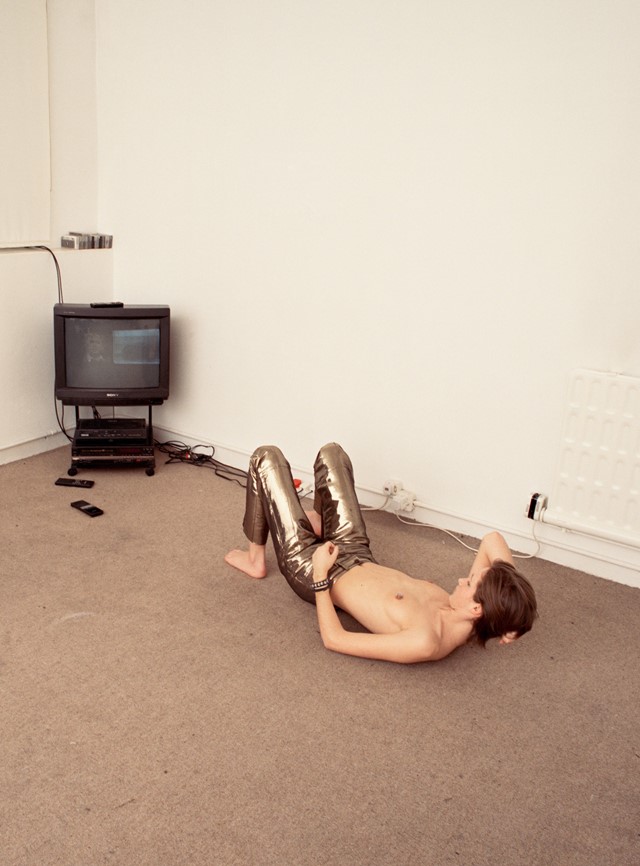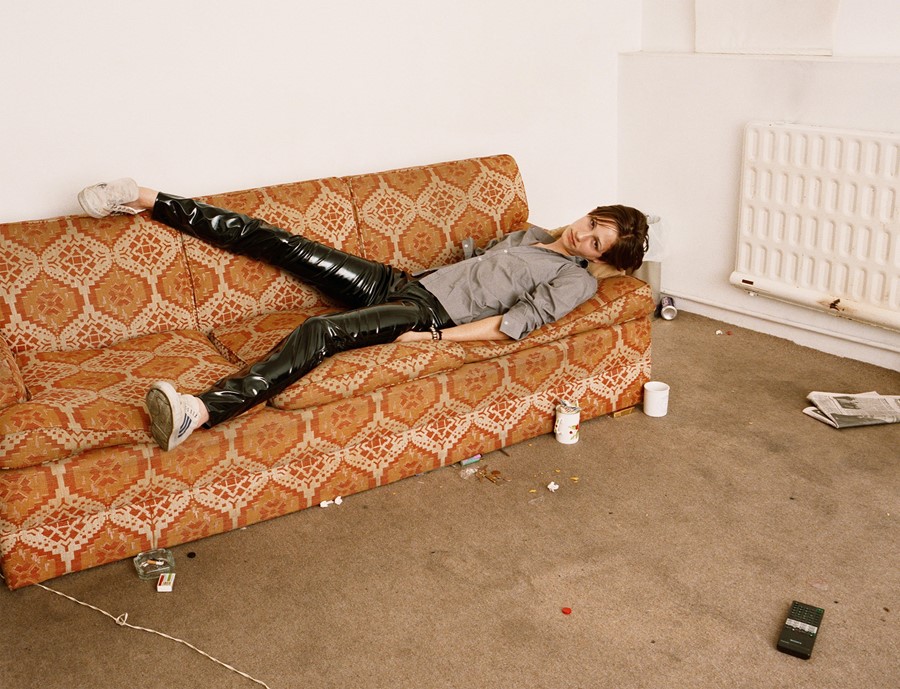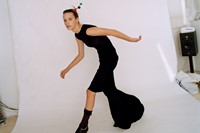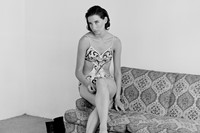Shot in Soho, a new exhibition at The Photographers’ Gallery, features work by Corinne Day from the 1990s, taken in her Brewer Street flat-cum-studio in the storied area of London
In a flat on Brewer Street, Soho, Corinne Day produced some of the most recognised fashion photography of the 1990s. Day lived there with her partner Mark Szaszy, a photographer and filmmaker, and the flat doubled up as a studio for her seminal fashion image-making. “The building wasn’t residential – they lived in a 1930s block where they could see the neon on the Raymond Revuebar when they looked out the window,” says Karen McQuaid, co-curator with Julian Rodriguez of a new exhibition at The Photographers’ Gallery called Shot in Soho.
The photographs Day created in her Brewer Street flat-cum-studio feature in the exhibition alongside work by six other photographers, all of whom have chosen the streets and characters of Soho as subjects. Dating back to the 1960s photography of John Goldblatt, featuring work from the 1980s by William Klein and addressing modern-day Soho with a new commission by Daragh Soden, Shot in Soho celebrates the area’s unique vibrancy.
Day’s photographs offer a look at Soho through the eyes of a resident. “Corinne was an interesting choice for us,” says McQuaid. “There was a lot of street photography, a lot of things out there in the exterior – obviously the streets of Soho are particularly narrow and meandering and that’s an exciting thing for photographers. We wanted something to acknowledge that actually there’s a huge amount of creative individuals who have lived in Soho over the years.” The Photographers’ Gallery worked closely with Szaszy and the Corinne Day Archive on selecting photographs that originally appeared in magazines like The Face, i-D, Ray-Gun and Interview, including some previously unseen outtakes. (Day, who died in 2010, had a good relationship with the gallery, having held an exhibition of her work, Diary, there in 2000.)
“They had a lot of freedom in that space,” McQuaid explains. “They were the only people living in the block. I’m not sure if it was offices or what the other uses were but they could play music quite loud and quite late. Corinne was a serious photographer – that’s not to say that she was just partying all the time – but there is that evidence of both lives. They were using that space to generate lots of work.” Shooting in Soho in a lo-fi way, often with her friends rather than established models, Day’s work was at the forefront of a new wave of fashion photography in the 1990s. Her pictures of new faces like Rosemary Ferguson and Kate Moss became emblematic of a pared-back, gritty glamour that both shocked and stimulated the fashion industry (the wider British press would controversially dub the era’s waifish, grungey aesthetic ‘heroin chic’).

Photographs from England’s Dreaming, a 1993 editorial styled by Melanie Ward for The Face, appear in Shot in Soho. Ferguson is captured in Day’s flat, shiny metallic and vinyl trousers contrasting with lived-in brown carpets and a patterned sofa. In an essay on her website, Day herself wrote about these formative years. “I met Rosemary Ferguson [around 1991] in McDonalds. I thought Rose looked very androgynous. I found myself attracted to her in a way that I had never looked at a girl before. I photographed Rose in my flat which had a very badly beer-stained carpet from the parties we had. I was broke still on the dole. I never thought about the commercial aspect of fashion photography. I was having too much of a good time.”
Shot in Soho is at the Photographers’ Gallery, London, from October 18, 2019 – February 9, 2020.



